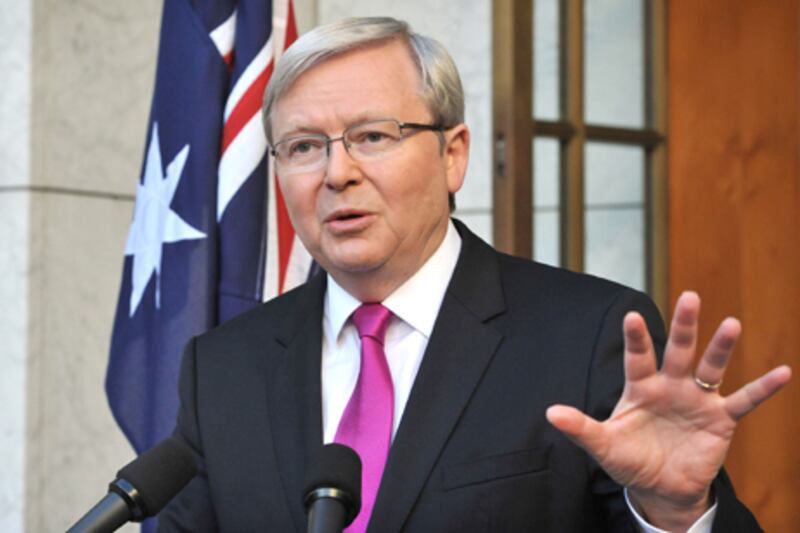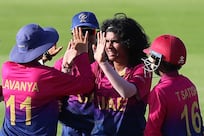SYDNEY // Australian Prime Minister Kevin Rudd on Sunday named September 7 as election day, hoping to complete a stunning political comeback with victory for his Labor Party three years after it ousted him.
Kicking off an election campaign set to focus on the economy and a decision to send asylum-seekers to Papua New Guinea and Nauru, Rudd met Governor General Quentin Bryce in Canberra to pave the way for the polls.
"It's on. A few moments ago I saw the governor-general and asked that she dissolve this parliament and call the federal election for September 7," Rudd, 55, said in an email to Labor supporters.
The former diplomat became prime minister for a second time in late June when Labor members of parliament voted to remove the nation's first woman leader, Julia Gillard, in hopes of saving the party from catastrophic electoral defeat.
Since then, he has introduced changes to asylum-seeker policy to refuse those arriving on unauthorised boats residency in Australia. Rudd has also made plans to scrap an unpopular carbon tax in favour of an emissions trading scheme.
He pushed Labor's economic credentials as he made his pitch to voters, saying the government had kept the economy out of recession during the global financial crisis but the mining-driven economy was now facing change.
"This election will be about who the Australian people trust to best lead them through the difficult new economic challenges which now lie ahead," Rudd told a press conference in Canberra.
"New challenges brought about by the end of the China resources boom. The boom of course has fuelled so much of this nation's wealth. That boom is over.
"This election will also be about who the Australian people trust to steer our economy through the great economic transition that therefore lies ahead."
Rudd's first term in office, which began with his landslide victory over conservative leader John Howard in 2007 polls, ended suddenly in mid-2010 when his Labor colleagues turned on him and voted in Gillard.
Gillard went to the polls shortly afterwards but that vote ended in a hung parliament, and she was forced to form a minority government with the help of several independents.
Rudd had kept the nation guessing on when the 2013 election -- at which voting is compulsory in Australia -- would be held.
He said he knew he was the underdog going up against conservative leader Tony Abbott, a former minister in Howard's government, in the election but the feeling in the community was that a poll should be held now.
Opposition Liberal Party leader Abbott welcomed the election date.
"At last the choice is yours, it's not the choice of the (Labor) caucus, it's not the choice of the faceless men, it's your choice," he told Australians, adding that if elected his government would build a stronger economy and get the budget under control.
"There's almost nothing wrong with our country that wouldn't be improved by a change of government."
In announcing the election date in Canberra, Rudd admitted that Australians had seen him "at my highest highs and some of my lowest lows", a reference to his crushing disappointment at the 2010 party room coup against him.
"Moments that I will never forgot, because whether they were good or bad, they certainly made me a much stronger person," he said. "I think as a result, you, the Australian people, know me pretty well, warts and all."
But the National Party, which would form a coalition with Abbott's Liberals if they win, dismissed the idea that Rudd had changed.
"Kevin Rudd hopes he can just surf in on a wave of amnesia. He won't be any better next time," said Nationals leader Warren Truss.





